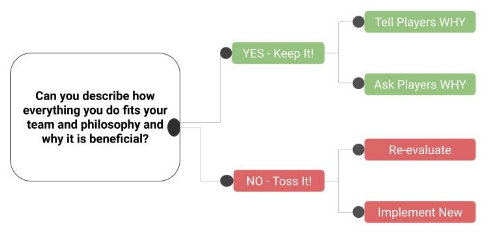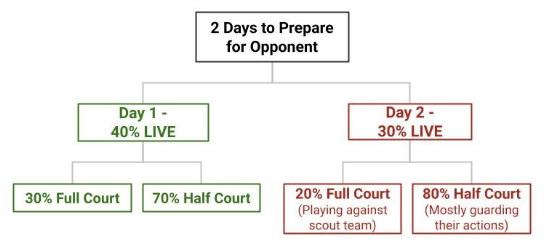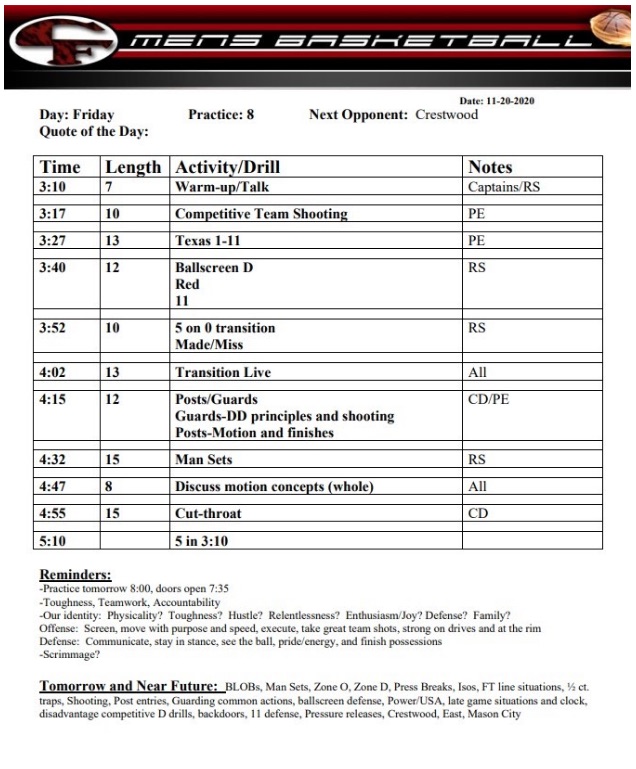5 Basketball Practice Tips From State Championship Coach
Below you're going to learn 5 of the best practice tips to help you win more games.
These tips create a more competitive environment, develop a better culture, and keep your athletes wanting to come back for more... Which leads to better better practices and better game performance!
These best practice tips are from an interview we did with Coach Ryan Schultz.
Now why should you listen to Coach Ryan Schultz?
For that, let's segue to something we found in the Cedar Rapids Gazette from future Hall of Fame college football coach Kirk Ferentz. (Ferentz is the all-time wins leader at University of Iowa and longest tenured coach in NCAA D1 football.)
Coach Ferentz was talking about a linebacker that he recruited from Cedar Falls High School in Iowa.
In his comments, Ferentz mentions that in his 23 years, he's visited a lot of high school gyms during the recruitment phase, but he particularly remembers that day at a Cedar Falls basketball practice 4-5 years ago...
Because of the impressive practice going on with Ryan Schultz.
Here's what Ferentz said:
"You can get a feel when you're at a practice, if the team's into it. And the coaches were highly organized. It really just flowed. It was really just impressive that way."
And keep in mind, these were unsolicited comments from Ferentz...
He just randomly mentioned this.
There was just something special about Schultz's practice that stood out above all the other schools and practices Ferentz had been to in his two decades as a highly successful coach.
And that's exactly what we noticed when we first watched Schultz in his Hybrid Attack Offense videos...
Schultz can teach basketball. Plain and simple - he is a really good coach.
And Schultz's results speak for itself... In the last 6 years, his team earned 2 state championships and 5 state semi final appearances.
So...naturally...we wanted to find out what he does to be so successful, and he shared his thoughts with me in an interview.
These tips really emphasize his teaching ability, knowledge of the game and kids, and organizational skills that can help us all in our coaching.
These concepts are why Schultz's practice that day remained with Ferentz all these years...
We hope you enjoy the tips below!
1 - Be able to answer the question "Why?" and tell your players Why!
#1 - You should be able to describe how everything you do fits your team and philosophy and why it is beneficial.
#2 - Throw it out if you can't give the reason/s...no matter how cool it looked on a video, at a clinic, or at a college practice.
#3 - Tell your players why you are doing something. This will create buy-in and understanding - thereby creating more effort, accountability, and purpose.
Otherwise players will view practice as a series of drills to get through - instead of fostering a growth mindset and competing with a purpose.
#4 - Ask your players why they're doing something and make them answer it.
You can ask a question like, "Mike, why do we want a positive pass?" and give wait time to allow the player to answer (count to 5 in your head if you need to give adequate wait time).

2 - Get players talking, competing, and feeling the ball right away.
This idea came from Schultz's own experience as a player who just wanted to get the ball in his hand right away at practice...
After all, kids "sit" all day in relative silence, so when they come to practice, it's important to get them in a whole new mindset.
So Schultz almost always begins the "live" portion of practices with a competitive full court drill or competitive shooting drill (often both) because:
- It creates energy
- Promotes focus
- Sets the stage for maximum effort
- Creates competitiveness
- Gets them hearing voices
Here are a couple of ideas...
Players need to get the feel of the ball and be primed for high level practices right away!
3 - Remember to get up and down and go live!
"Live" = Going 4v4 or 5v5 in any scrimmage or game-like setting.
Coach Schultz admits that in the past he sometimes got caught up staying in the half court setting too much.
This was because he was too focused on getting the objectives in without getting the players "doing." During those times, practice would stagnate...he could feel the energy just die.
Now he makes sure not to plan too many half court activities back to back, especially as it seems kids' attention spans are shorter than they used to be.
Early in the season, you can spend more time live and in the full court setting.
As time goes on, how much you go live and full court all depends on who the upcoming opponent is, where you're at with things, the time of year, injury status, etc....sometimes it just comes down to "feel."
Here is a general breakdown of how Schultz divides up his practice when he has 2 days to prepare for an opponent (which is pretty normal mid-season):

4 - Develop "winning play" scoring.
Schultz visited the University of Northern Iowa practice one time when they were doing a drill where teams got an extra point for taking a charge.
He saw the enthusiasm and how it promoted that skill, so he took that idea of awarding extra points during competitive drills and morphed it into his own practice strategy.
You can award bonus points during breakdown drills or in a live setting...usually in plays that are hustle-oriented or when players need to give up their body.
He does focus a lot on awarding points for taking charges, but you can award points for any skill or desired behavior you need your players to transfer to game time.
You can read more about using points to promote aggressiveness and hustle in this article.
5 - Plan to the minute and use a clock to stay on task.
When Schultz plans a practice, he plans it down to the minute.
What that means is that he doesn't plan practices just using 5 and 10 minute increments.
Over time, he has developed a feel for how long certain drills typically take. Therefore, he might schedule a drill for 7 minutes, or 12 minutes, etc.
BEFORE THE SEASON BEGINS:
- Map out the first couple weeks in terms of what is absolutely essential to get in to go play the first game.
- You can refer to past practices but always write new practice plans each season.
PRACTICE TIMES:
- Before Christmas, Schultz's practices are 2+ hours.
- After Christmas, practices run about 1.5 hours to keep kids engaged and sharp - physically and mentally
BASIC TIPS:
- Always incorporate time for explanation into your practice.
- Bring copies of your plan to practice for assistants, managers, and players to look at.
- Start practice by sharing the objectives and what you want to accomplish for the day (tell them the WHY).
- Use the clock or portable timers to keep on track.
- After a practice while things are fresh, reflect on what went well, what you need to do the next day, and what needs to be done in the near future. Take this time to at least begin the planning process for the next day.
Over the years Schultz has developed a practice plan template that he really likes. He even let us share one of his!

Click here to download a blank copy of Schultz's practice plan for your own use.
THE TAKE-AWAY:
We hope at least one of these tips resonates with you...and that it can help you prepare an organized practice that other people will take note of and think...
"Hey, something special's going on in that gym!"
Related Products & Articles
Ryan Schultz's Hybrid Attack Offense - The Best of Motion Offense and Dribble Drive
50 Game-Based Practice Drills with Nate Sanderson
What do you think? Let us know by leaving your comments, suggestions, and questions...
|
|||


 Facebook (145k Followers)
Facebook (145k Followers) YouTube (152k Subscribers)
YouTube (152k Subscribers) Twitter (33k Followers)
Twitter (33k Followers) Q&A Forum
Q&A Forum Podcasts
Podcasts